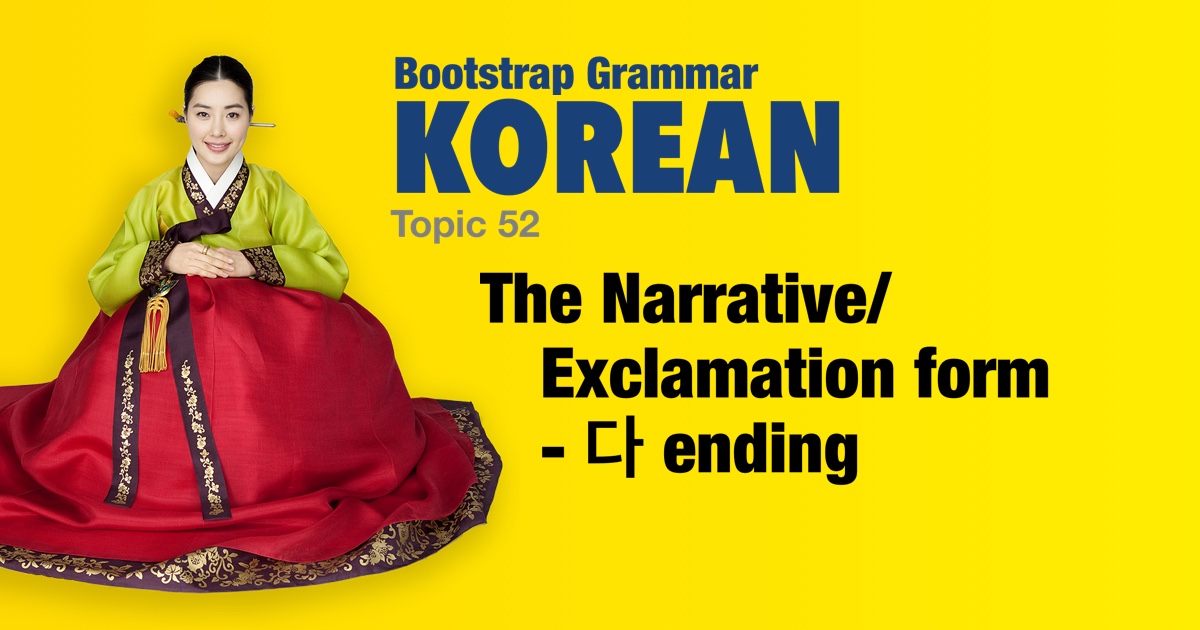Korean grammar - The Narrative/Exclamation form - 다 ending |
|||
|
|||
So far we have been using the 'informal high' form of verbs which end in 요. This form is used to address people of a higher status than the speaker. Many other verb forms (conjugations) exist in Korean. One such very common form is the Narrative or Exclamation form. It is used when the speaker making a remark that is not directed to a listener. The speaker is making a remark or exclamation (perhaps to him/herself) and/or expects no response from anyone. • For descriptive verbs we use the dictionary form. • For action verbs we add ㄴ/은다 to the Verb stem. The Narrative or Exclamation can also be used in the past and future tenses: • Past tense: Action and descriptive Verb stem + 았/었/였다 • Future tense: Action and descriptive Verb stem + ㄹ/을 것이다 or 겠다 or even 거다. This form is common in written Korean reflecting the fact that no one in particular is being addressed directly. |
| Examples: | |
|
아이고, 덥다!
Oh my, it's hot!
|
|
|
드디어 버스가 온다.
Finally the bus is coming.
|
|
|
전화 온다.
The phone is ringing.
|
|
|
나 지금 간다.
I'm going now.
|
|
|
그 옷이 예쁘다.
Those clothes are pretty.
|
|
|
다 됐다.
All done.
|
|
|
숙제를 했다.
Homework done.
|
|
|
저녁을 곧 먹을 것이다.
(I) will eat soon.
|
|
|
이거 진짜 무겁다!
This is really heavy!
|
|
|
오, 눈 온다.
Oh, it’s snowing.
|
|
|
열쇠 어디 있어? 아, 여기 있다.
Where is the key? Ah, here (it) is.
|
|
|
전화가 안돼요. 어? 다시 된다!
(My) phone doesn’t work. Hey? (It) works again.
|
|
|
그 사람 정말 키가 크다.
The person is really tall.
|
|
|
그 개는 물을 다 마셨다.
That dog drank all the water.
|
|
|
이거 좋을 거다.
This will be good.
|
|
|
나는 내일 피자를 먹겠다
I'll eat pizza tomorrow.
|
|
 |
|



